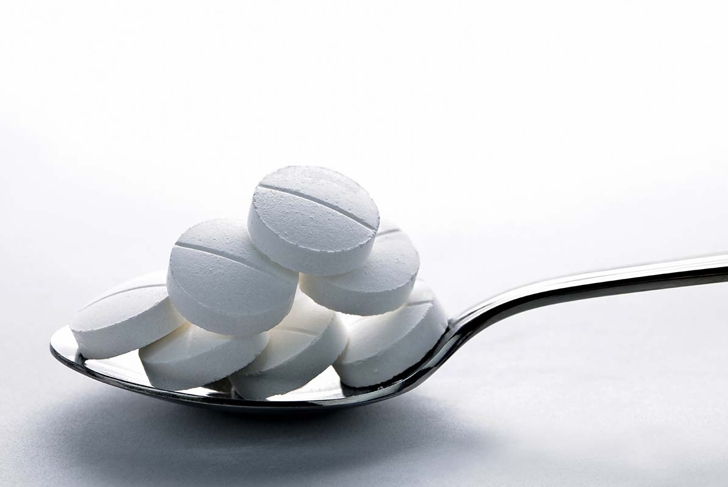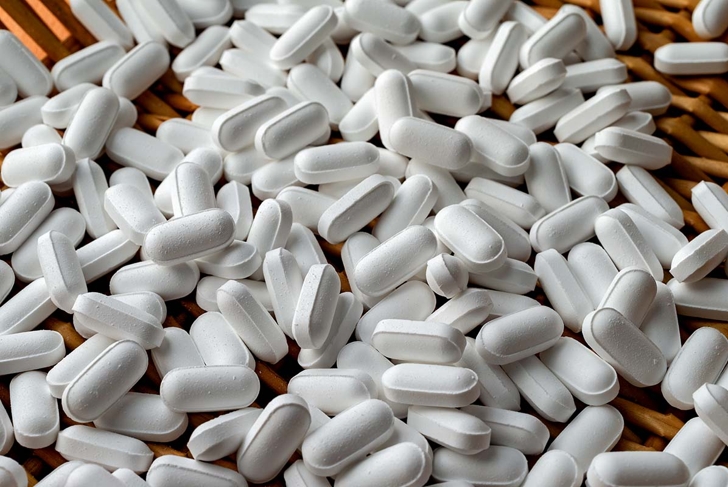
Whether you’re 40 or 65, eating a variety of whole foods will benefit you for years to come. As you continue to age, however, your body just can’t absorb some nutrients from food as well as it did years ago. Supplements can be beneficial. That’s why we’ve compiled a list of the 10 best supplements for women over 40. Remember to consult your health care practitioner before starting any new vitamin regimen.
Vitamin B12

Vitamin B12 builds red blood cells and assists in brain function and development. Without it, you may experience low energy levels, memory loss, and nerve damage. It’s estimated that 30 to 50 percent of adults over 50 are B12 deficient. B12 supplements are generally considered to be safe because any excess leaves your body through urine.
Omega-3s fatty acids

Omega-3 fatty acids support your heart, eyesight, and cognitive function. Studies also suggest they may play a role in preventing cancer. Since omega-3s may protect against age-related conditions, like heart disease and macular degeneration, experts recommend higher intakes of omega-3s for older adults. Omega-3 supplements come in fish oil, krill oil, and cod liver oil. Vegetarians and vegans can take algal oil, which comes from algae.
Calcium

Nearly all the calcium in your body is stored in your bones. When you don’t eat enough of it, your body taps that bone reservoir to fulfill its physiological needs. This could weaken your bones and lead to osteoporosis. In women, estrogen helps the body absorb calcium. However, as you approach menopause, your estrogen levels dip, which results in poor absorption.
Vitamin B6

Vitamin B6 supports the body’s nervous and immune system. It’s found in foods like chickpeas and bananas. A deficiency may lead to depression, weakened immunity, and certain skin conditions. As you grow older, your body needs more B6. High levels of B6 have been linked to better memory in aging populations.
Potassium

Potassium keeps your bones strong and may reduce the risk of stroke and high blood pressure. It also supports your kidneys, muscles, nerves, and heart. Although potassium can be found in a lot of popular foods, like bananas and avocadoes, many older individuals still don’t get the recommended 4,700 mg per day. Unfortunately, certain medications and health conditions block the absorption of potassium. If you’re over 40 years old, ask your health care practitioner if you’re getting enough of it.
Vitamin D

Vitamin D reduces inflammation, helps the body absorb calcium, and supports the immune system. When women turn 40 and creep closer to menopause, a lack of vitamin D may result in weakened bones and osteoporosis. Because it isn’t found in many foods, and most people aren’t absorbing enough of it from the sun, vitamin D supplements can be beneficial.
Probiotics

Trillions of bacteria live in your gut. Good bacteria keep your immune system in check and aid digestion. Others are considered bad because they cause illness. If you’re stressed, took a round of antibiotics, or have certain medical conditions, your good gut bacteria could get wiped out. Since this could lead to health issues, like irritable bowel disease and obesity, it’s important to restore the equilibrium. Probiotics help to maintain balance, and as you age, you’ll want to pay close attention to the different strains and their benefits.
Zinc

Zinc supports your immune system and metabolism. There’s also evidence that it shortens colds, slows the progression of macular degeneration, and reduces diarrhea. Since zinc is known to support the body in many important ways, it’s an important nutrient to focus on as you age.
Selenium

You may not hear about selenium very often, but it reduces the risk of age-related diseases. It also blocks infections and builds muscles, and it may help prevent dementia, cancer, and thyroid disease. Selenium can be found in a multivitamin or as a separate supplement. Just be careful not to exceed the recommended dietary allowance of 55 mg daily.
Magnesium

Magnesium regulates nerve function and helps keep your blood sugar balanced. As you age, a mild magnesium deficit could result in sleep and cognitive disorders. Maintaining normal magnesium levels through the years may help stave off age-related chronic conditions, like heart disease and diabetes.





